ISL | Impact through Systems Learning
About
The core focus of the Intelligent Systems Lab (ISL) is to develop intelligent-systems integrated enabling technologies. We adopt the definition of Enabling Technologies as "Innovations and/or methodologies that, alone or combined with associated technologies, provides means to generate giant leaps in performance and capabilities or drive radical changes in user or cultural capabilities." Our research, development and implementation process involves:
- Generating novel knowledge and theories, disseminating them to the scientific community for feedback
- Implementing theories as prototypical systems and conducting in-situ studies
- Working with stakeholders to deploy prototypes in real-world scenarios, monitoring outcomes and collecting data
- Refining technologies and disseminating information to the wider public about their purpose, capabilities, and limitations while partnering with incubators for sector-specific applications
- Partnering with multilateral organizations and national policy bodies to provide technical expertise and generate evidence-based policies
To track the development of our projects we adopt the Technology Readiness Level definitions and assumptions found here. Some of our projects are distributed as open-source under the attribution-noncommercial-sharealike license unless or otherwise stated, and can be found on our GitHub repository.

Staff
The ISL comprises a core group of academic and industry experts. Partnerships with for-profit institutions are established through the signing of Memoranda of Understanding (MoUs). Currently, the ISL has academic partnerships with researchers from Tallinn University in Estonia, Brandenburg University in Germany, Rutgers University in USA, and Kyungpook National University in South Korea.
Core Technologies
ISL is currently focused on the following intelligent-systems integrated enabling technologies:
- Artificial Intelligence: Generation of mathematical theories and algorithms, their practical implementation into software and the construction of hardware processing systems
- Applied Intelligent Systems: Research, design and implementation of AI/ML systems from ISL's AI framework to solve real-world problems.
- Autonomous Systems: The study of control theory and advanced decision systems and their applications to robotics, industrial, energy and software systems
Information Dissemination
The ISL disseminates information through scientific publications, technical reports, conferences, seminars and social media.
Ongoing Projects Catalogue
The following listings comprise projects that are not bound by an NDA (Non-Disclosure Agreement). Each project is licensed separately and assigned a Technology Readiness Level (TRL) ranging from 1 to 9. See more information about TRL here.
Artificial Intelligence
ISL-NANO Cortex: A training and cross-platform inference framework for low-compute AI Systems
Maintainer: Nathan Ragoobar
Contributor: Lee Bissessar
TRL: 4
The ISL-NANO Cortex software framework is intended to be a training and cross-platform inference framework for AI systems optimized to share loads between the CPU and GPU.
ISL-NANO Safety: A Quantitative Risk and Knowledge Distillation Framework for AI systems
Maintainer: Samantha Deonarine
Contributor: Jonathan Nancoo
TRL: 6
This project aims to develop a quantitative risk reduction framework and knowledge distillation software platform for automated fine-tuning to produce resilient and aligned AI systems.
ISL-NANO Symbolica: An argumentation and game theoretic framework for multi-agent AI systems
Maintainer: Jonathan Nancoo
TRL: 2
This project explores the development of faithful AI Agent systems with enhanced reasoning capabilities, through the use of argumentation and game theory.
ISL-NANO Insight: A Universal Knowledge System for AI Memory Management
Maintainer: Kevon Andrews
Contributor: Lee Bissessar
TRL: 2
This project aims to develop a universal fault-tolerant data and knowledge orchestration system that is interoperable among various data-sources and has a low level of reasoning.
ISL-NANO Embedded: Hardware Accelerators for NANO Machine Learning Architectures
Maintainer: Lincoln Marine
Contributor: Stephen Allong
Contributor: Azim Abdool
TRL: 2
This project aims to develop processing hardware accelerators for the list of compatible NANO machine learning architectures.
ISL-NANO Automaton: The Autonomous Multimodal Planning, Decision and Reasoning System
Maintainer: Derron Phagoo
TRL: 3
This project explores the implementation of a control theoretic framework that allows the ability to integrate a multi-domain multi-modal reasoning and planning machine with actuators and sensors to execute complex tasks. This project heavily focusses on the framework for integrating and leaning new hardware and software tools to be operated as actuators and sensors to an autonomous system.
Autonomous Systems
Attack Resilency Framework
Maintainer: Amir Mohammed
TRL: 6
This project proposes novel attack resilient theory for the protection and control of cyber-physical systems. We study self-driving platoons of autonomous vehicles and construct novel control methods to reject and recover from Denial of Service, False Data Injection and Replay attacks.
Read more...
SimuNEX
Maintainer: Lee Bissessar
TRL: 7
SimuNEX is an AI-enabled high-fidelity simulation platform consisting of a physics engine, advanced control systems solver, HMI developer and test harness. It is adaptable for many applications.
Read more...
Multi-Agent Cooperative Transportation Control of a Quadrotor Lifting System
Maintainer: Cade Coker
TRL: 2
Quadrotor Unmanned Aerial Vehicles (QUAVs) form a popular platform for tethered payload transportation due to their agility, ability to precisely hover, and their Vertical Take-Off and Landing (VTOL) capabilities. These vehicles however, are limited by their carrying capability...
Read more...
Cooperative Control and Path-Planning of Multiple Robots Transporting Objects on a Deformable Sheet
Maintainer: Kyle Hunte
TRL: 7
This research project focuses on the design of path-planning and control algorithms for a multi-robot transportation system that uses a deformable sheet to transport and manipulate objects.
Applied Intelligent Systems
ISL-STAGE NPC: Fictional Character Reconstruction from Limited Data
Maintainer: Amanda Zilla
TRL: 4
Fictional Characters based on historical stories are a popular medium for storytelling and preserving cultural heritage. However, the creation of fictional characters from limited data is a challenge and usually requires the analysis and input of secondary sources. This project develops AI-driven reasoning methods to reconstruct fictional characters that reflect cultural narratives.
ISL-STAGE INTERFACE: Real-time AI systems for audiovisual human-machine interaction
Maintainer: Craig Ramlal
TRL: 2
This project centers on developing techniques for low-compute, AI-driven conversions between audio, visual, and text modalities. A primary focus is on enabling rapid speech-to-text transcription, text-to-speech synthesis, and intelligent character animation, all in real-time.
ISL-STAGE IMMERSIVE: VR Environment Simulation and Management
Maintainer: Craig Ramlal
TRL: 2
ISL-STAGE IMMERSIVE aims to create scalable workflows for designing and maintaining interactive 3D spaces rooted in cultural artifacts and historical reconstructions. The project uses digitized objects, landscapes, and architectural elements to generate authentic virtual environments that serve as a platform for educational exploration and experiential storytelling.
ISL-STAGE STORYCRAFT: Generative Narrative Authoring
Maintainer: Craig Ramlal
TRL: 2
This project is dedicated to automating the creation of branching narratives that incorporate cultural themes, character arcs, and user-defined story elements. The ultimate goal is to produce narratives that highlight regional stories and oral traditions while appealing to contemporary audiences and may include new interpretations or modernized retellings.
ISL-Plasma HV-HF: High Voltage-High Frequency Controllable Power System
Maintainer: Chane Gomes
TRL: 2
This project deals with the construction of a high-voltage power supply for a plasma generator with power and frequency characteristics specific to water treatment.
ISL-Plasma NO2/3: Generating Soluble Nitrates from Atmospheric Air
Maintainer: Kyle Lochan
TRL: 2
This project deals with the design and implementation of an electrode topology for the cold atmospheric plasma generation and a liquid delivery system for the creation of soluble nitrates from atmospheric air.
Semi-automated restoration of cultural footage
Maintainer: Daniel Ringis
TRL: 2
Video is one of the most important cultural carriers. Traditionally, video has been stored on film, however, as a storage medium, film can naturally degrade through the deterioration of colour dyes over time and with dust causing scratches on the film thereby impacting the quality of the video.
Trinidadian Creole Speech Recognition
Maintainer: Daniel Ringis
TRL: 2
Speech recognition technology is becoming more widely adopted across services such as speech-to-text transcription and voice recognition. Additionally, integration with applications including emergency response centers and search engines makes it a valuable tool for interacting with computers.
Completed Projects Catalogue
The following lists Intelligent Systems Lab completed projects.
AquaChain: A Blockchain Mechanism for Water Quality Management
Partner: Global Water Partnership-Caribbean
This project studied the potential of blockchain technology to transform water management practices in the region by tackling issues of seasonal water scarcity, natural resource conservation, wastewater management and water inequity. The project resulted in a blockchain solution on the Solana infrastructure and is openly available on ISLs GitHub repository.
Read more...
Transmission Line Diagnostics with Intelligent Systems
Partners: Tallinn University and Elering AS
This project developed deep learning models, a health framework and software systems for the automatic diagnostics of overhead transmission lines and health determination.
Read more...
ARAD: Air Recirculation and Decontamination
Partner: Officials from the Ministry of Health
This project developed an air recirculation and decontamination system for in hospital use during the COVID-19 pandemic to minimize its spread.
Read more...
Research Grants
The following lists the research grants and funding opportunities awarded to the ISL
01
Hospitech: Supporting in-hospital COVID-19 response through technology (Research and Development Initiative $120,000USD). Click here for further information
Status: Completed
02
CRP.3NOV23.06: Toward Faithful AI Systems: A Multi-Agent Unfalsified Framework ($11,500USD)
Status: Ongoing
03
Global Water Partnership-Caribbean: Advancing Water Quality through Blockchain Technlology (funding: undisclosed)
Status: Completed
04
ATIM: Autonomous Transmission Infrastructure Monitoring (Research and Development Initiative $100,000USD)
Status: Completed
Publications
Mohammed, Amir, Craig Ramlal, Lincoln Marine, and Fasil Muddeen. "Resilient Event Triggered Interval Type‐2 Fuzzy Sliding Mode Control for Connected and Autonomous Vehicles Subjected to Multiple Cyber Attacks." Journal of Advanced Transportation 2024, no. 1 (2024): 2790548.
Phillip, Micah, Arvind Singh, and Craig J. Ramlal. "Narrow Band Frequency Response Analysis of Power Transformers with Deep Learning." Energies 16, no. 17 (2023): 6347.
Mungal, M. J., A. Singh, C. J. Ramlal, and J. Colthrust. "Sensitivity analysis of the unit commitment problem to guide data acquisition investments in a small island developing state: A case study." Results in Engineering 18 (2023): 101191.
Hunte, Kyle, Craig J. Ramlal, and Jingang Yi. "Dynamic Path Planning for Multiple Robots Transporting Objects in a Deformable Sheet." IFAC-PapersOnLine 56, no. 3 (2023): 505-510.
Mohammed, Amir, Fasil Muddeen, Lincoln Marine, and Craig J. Ramlal. "The Exigency for Resilient and Cyber-Secure Critical Infrastructure in the Caribbean." West Indian Journal of Engineering 45, no. 2 (2023).
Manninen, Henri, Craig J. Ramlal, Arvind Singh, Jako Kilter, and Mart Landsberg. "Multi-stage deep learning networks for automated assessment of electricity transmission infrastructure using fly-by images." Electric Power Systems Research 209 (2022): 107948.
Mohammed, Amir, Fasil Muddeen, Craig J. Ramlal, and Lincoln Marine. "A Comprehensive Review of Fault Tolerant and Resilient Cyber-Secure strategies for Critical Infrastructure Protection." The Industrial Engineering and Management Journal 1, no. 1 (2022): 66-76.
Manninen, Henri, Craig J. Ramlal, Arvind Singh, Sean Rocke, Jako Kilter, and Mart Landsberg. "Toward automatic condition assessment of high-voltage transmission infrastructure using deep learning techniques." International Journal of Electrical Power & Energy Systems 128 (2021): 106726.
Ramlal, Craig J., Arvind Singh, Sean Rocke, Henri Manninen, Jako Kilter, and Mart Landsberg. "Toward automated utility pole condition monitoring: A deep learning approach." In 2020 IEEE PES Innovative Smart Grid Technologies Europe (ISGT-Europe), pp. 255-259. IEEE, 2020.
Ramlal, Craig J., Arvind Singh, and Sean Rocke. "Repetitive learning frequency control for energy intensive corporate microgrids subject to Cyclic Batch Loads." In 2020 IEEE PES Innovative Smart Grid Technologies Europe (ISGT-Europe), pp. 349-353. IEEE, 2020.
Mohammed, Amir, Craig J. Ramlal, Arvind Singh, Sean Rocke, and Daniel Goitia. "A simulation framework for controlled critical infrastructures subject to natural disasters." (2020).
Singh, Arvind, Sean Rocke, Akash Pooransingh, and Craig J. Ramlal. "Improving student engagement in teaching electric machines through blended learning." IEEE Transactions on Education 62, no. 4 (2019): 297-304.
Ramlal, Craig J., Arvind Singh, Sean Rocke, and Michael Sutherland. "Decentralized Fuzzy $ H_\infty $-Iterative Learning LFC With Time-Varying Communication Delays and Parametric Uncertainties." IEEE Transactions on power systems 34, no. 6 (2019): 4718-4727.
Dookie, Isa, Sean Rocke, Arvind Singh, and Craig J. Ramlal. "Evaluating wind speed probability distribution models with a novel goodness of fit metric: a Trinidad and Tobago case study." International journal of energy and environmental engineering 9 (2018): 323-339.
ISL Annual Reports
The following lists ISL's annual reports:
2024
ISL-RPT-2024: From Concept to Communities: Impacting the Future.
Current Researchers

Dr Craig Ramlal
Principal Investigator; Steering Committee Chair
Dr. Craig Ramlal is the Head of the Control Systems Group at the University of the West Indies, St. Augustine. He earned his BSc(e), MASc, and PhD in Electrical and Computer Engineering split-site from KFUPM and UWI. He served on the United Nation's Secretary General's High-Level Advisory Board on AI, and serves on the Caribbean Telecommunications Union Working Group on AI and the Caribbean Development Bank's Technical Subcommittee on IRC/RDA. He has conducted impactful work such as coordinating open data strategies for Caribbean nations, leading projects with Ministry of Health and University of Florida for COVID-19 mitigation, and developing Industrial Diagnostic tools for Estonia's grid using deep learning techniques. His expertise lies in Intelligent Control Strategies, Game Theory and Artificial Intelligence.
Read more...

Prof Bhesham Ramlal
Co-Investigator; Steering Committee Member
Prof. Bheshem Ramlal is a Professor of Geospatial Information Engineering and Dean, Faculty of Engineering at the University of the West Indies, St. Augustine. His research is focused on the development of spatial data infrastructures, geo-enablement of society, data quality issues, data sharing policy, and participatory decision support systems. Professor Ramlal has published several academic and professional papers in journals, books and conferences. He has served as a reviewer for several journals and conferences, and as a member of the organizing committee for several regional and international conferences. He has provided professional support on several geospatial and mapping projects for national, regional and international agencies. He has served in several capacities at the University of the West Indies, on professional bodies and state organizations.

Dr Arvind Singh
Co-Investigator; Steering Committee Member
Arvind Singh is a senior lecturer of energy systems and currently serves as the Head of the Electrical and Computer Engineering Department. Additionally, he serves as the principal investigator of the ARC labs. He gained his B.Sc. in Electrical and Computer Engineering at the University of the West Indies in 2003. Subsequently he went on to study at the University of British Columbia where he obtained his Master’s and Doctoral degrees in 2006 and 2009 respectively. His current research focuses on the application of AI to Power Systems in the areas of Infrastructure Condition Monitoring, Optimization, Protection and, Control of Inverter Based Resources.

Prof Chris Maharaj
Co-Investigator; Steering Committee Member
Chris Maharaj is a Professor and Head of the Mechanical and Manufacturing Engineering Department of The University of the West Indies (UWI). He holds BSc and MSc qualifications in Mechanical Engineering and Engineering Management respectively from UWI. His PhD is from Imperial College London. He is an engineering academic with research experience in alternative use of waste materials, mechanical design optimization, failure analysis, component life assessment, asset management, innovation management, flipped classroom methods, and student motivation. He has industrial experience in design verification, maintenance, inspection, and condition monitoring in the petrochemical, petroleum refining, and oil and gas production sectors. Finally, he serves on the board of directors of Caribbean Airlines.

Prof Jako Kilter
Co-Investigator
Jako Kilter is a professor of power systems with the Department of Electrical Power Engineering and Mechatronics, Tallinn University of Technology. He received the B.Sc., M.Sc., and Ph.D. degrees in electrical power engineering from the Tallinn University of Technology (TUT), Tallinn, in 2003, 2005, and 2009, respectively. He was an Estonian Transmission System Operator (network control, system planning, technology, and research and development) for more than 15 years. His special field of interest includes electrical network state estimation and analysis, power system monitoring and control, modeling of loads, power system stability, power quality, wide-area applications, high voltage dc, and flexible ac transmission.
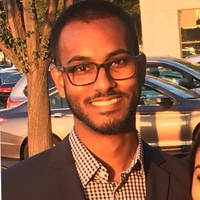
Dr Yohan Seepersad
Co-Investigator
Yohan Seepersad is a plasma and systems engineering expert, with ten years experience in the semiconductor equipment industry. He is currently an engineering professional at IBM Research, in Albany, New York, driving innovations for microfabrication of next-generation computing chips, and development of an AI-based architecture for an intelligent fab management system. He is a 2010 UWI graduate with a BSc in Electrical and Computer Engineering, and later received his PhD from Drexel University for research at the Nyheim Plasma Institute on pulsed discharge in liquids. He holds multiple patents and is currently co-supervising projects for atmospheric plasma applications for the Caribbean.

Dr Henri Manninen
Co-Investigator
Dr Henri Manninen is a researcher of power systems at the Tallinn University of Technology, Estonia and the co-founder and CTO of Grid Raven , an Estonian based company developing AI tools that enables grid operators to make more transmission capacity available for renewable energy producers while maintaining safety. He held responsibilities in working groups at the International Council on Large Electric Systems developing standards for asset health indices for equipment in existing substations. Lastly, he served as a project manager of asset management digitalization; and subsequently the digitalization team leader where he led the development and implementation of a risk and condition-based asset management systems for the Estonian electricity and gas transmission system. He was responsible for the development of an asset management platform and the product owner of multiple condition assessment applications for transmission overhead lines and substations.

Dr Daniel Ringis
Co-Investigator
Dr. Daniel Joseph Ringis previously studied Electrical and Computer Engineering from 2008 - 2012 and 2016-2017 at the University of the West Indies. After which he completed a PhD at Trinity College Dublin, Ireland in Video Processing. During his time there, he was very active in student organising groups such as the PhD Workers Rights group and previously served as the Faculty Representative for the Graduate Students Union (2018-2020) and competed for awards which include: 2nd Place Huawei Future of Vision Challenge 2019, Top 10 Paper at Picture Coding Symposium 2021 and was a finalist at the Qualcomm Innovation Fellowship 2020 (Europe). His current research area is in video processing, engineering education and sports engineering.

Amanda Zilla
Co-Investigator
Amanda Zilla is a digital humanities researcher and full-time temporary assistant lecturer in the Faculty of Humanities and Education. Her interests include virtual reality, artificial intelligence, narratology, transmedial narratives, lived experiences in "multiple realities" and narrative ethics. It is her hope that her work positively contributes to minimizing the digital divide between Developing & Developed nations and influences the incorporation of bleeding-edge technology and media into operations across many fields regionally, and internationally. Ms. Zilla has published articles, delivered conference papers, and designed workshops and an undergraduate course for The UWI STA reflecting these interests.

Azim Abdool
Co-Investigator
Azim Abdool is an engineer and a member (M) of IEEE and APETT. His research interests are in embedded and affective computing. He has been an Instructor in Computer Systems Engineering at the UWI since 2008 and has also served as Director of Fasove Product Development Ltd. since 2015. He received a B.Sc. in ECE from The University of the West Indies (The UWI), St Augustine, Trinidad and Tobago, in 2008, was formerly a research associate with the University of York, UK (2012) and is currently reading for a Ph.D. in ECE from The UWI.

Kyle Hunte
Co-Investigator
Kyle Hunte completed his BSc and MASc in Electrical and Computer Engineering at the University of the West Indies and subsequently completed an MSc in Mechanical Engineering at Rutgers University. He is currently a PhD candidate in Electrical and Computer Engineering at Rutgers and serves as a Process Control Engineer at ICA Engineering leading design and engineering projects for large-scale utility, manufacturing, pharmaceutical and chemical companies.
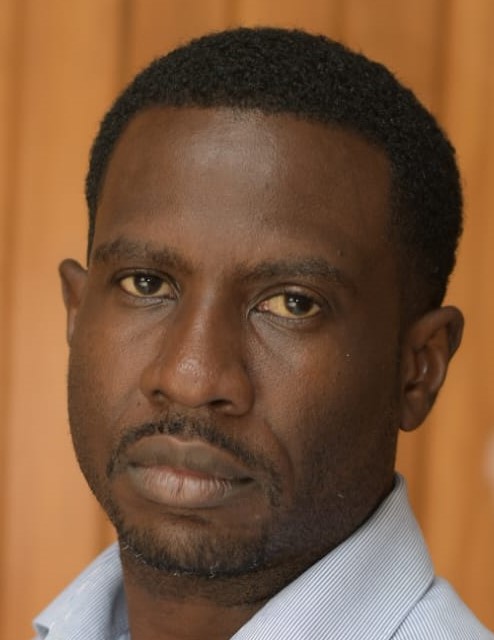
Kevon Andrews
Project Manager
Kevon Andrews, with 15+ years in software engineering, is an Electrical and Computer Engineer from The University of West Indies, St. Augustine, holding a B.Sc. (2003) and M.Sc. (2006) in Communication Systems. He's delivered software solutions across industries like fisheries, agriculture, and medical. Since 2008, he's been an Engineer at the same university, co-leading projects such as FEWER, CC4FISH, and mFisheries. Currently, he focuses on software systems research, especially in AI.

Ravi Deonarine
Project Manager
Ravi Deonarine is an Engineer II at the Department of Electrical and Computer Engineering. In addition to research and development projects he is responsible for the department’s online systems which includes several web applications that support the department operations. He also supervises undergraduate final year projects and has previously lectured in Telecommunications in both the undergraduate and postgraduate Electrical and Computer Engineering programs.

Daniel Goita
Project Manager
Daniel Goitia is a PhD candidate in the Department of Electrical and Computer Engineering at The University of the West Indies (UWI), St. Augustine. He holds a BSc and MASc in Electrical and Computer Engineering from UWI and currently serves as an Engineer, specializing in academic-related duties at the St. Augustine Campus. With over 10 years of experience in academia, he has been actively engaged in teaching. His research interests focus on wireless communication, with emphasis on 6G networks, the Internet of Things (IoT), and cybersecurity. He is passionate about advancing secure, efficient, and scalable communication technologies for the future digital landscape.

Amir Mohammed
Researcher
Received his BSc and MASc in Electrical and Computer Engineering with a major in Control Systems from the University of the West Indies (UWI), St Augustine. He is currently a PhD Candidate in Electrical and Computer Engineering at the UWI. His interests include Industrial Cyber Physical Systems, Resilient Control, Fault Tolerant Control and Artificial Intelligence.

Lincoln Marine
Researcher
He earned a BSc in Electrical and Computer Engineering focused on Control and Communication Systems from UWI, St. Augustine, with a keen interest in Fuzzy Logic Control and Machine Learning.

Lee Bissessar
Researcher
holds a BSc in ECNG from the University of the West Indies, Trinidad and Tobago. He led the creation of the Autonomous Systems MATLAB Simulation Package, enhancing system reliability using a model-driven approach. Lee is a primary developer at Intelligent Systems Labs, dedicated to dynamic simulation and innovative solutions in AI and robotics.
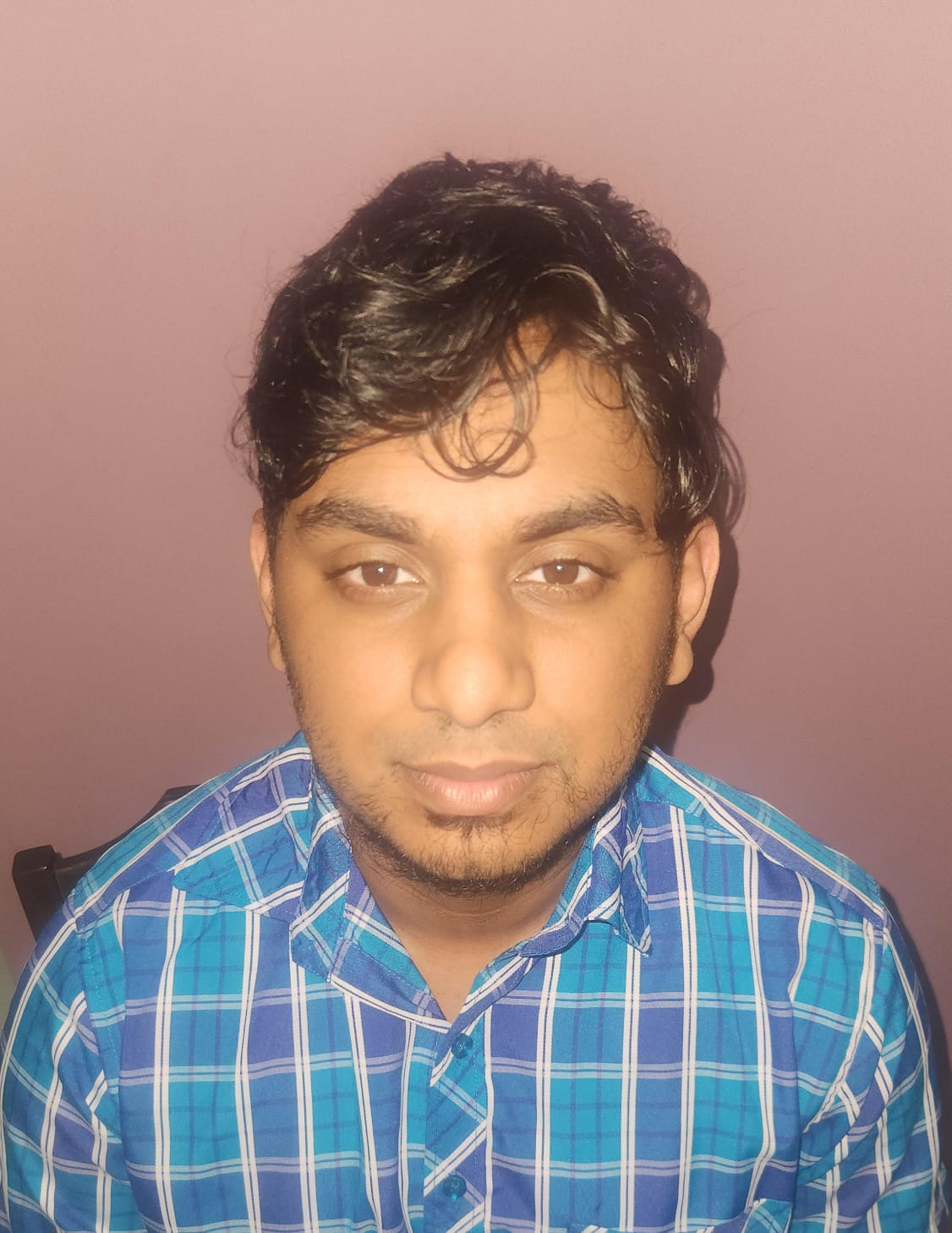
Jonathan Nancoo
Researcher
Jonathan Nancoo is an Electrical and Computer engineering student specialising in control systems..his interests include modelling and control of power electronic converters, data driven control techniques and fault tolerant control. A part time teacher for the past five years his is also interested in pedagogy and using utliising AI to enhance student engagement and improve student experiences.

Derron Phagoo
Researcher
He is an engineer with a diverse background in software and hardware development across the Automotive, Commercial, and Oil & Gas industries, with expertise in compliance with Industry Standards. His interests include Artificial Intelligence, Automation, and Robotics.

Cade Coker
Researcher
Cade Coker attained the BSc degree in Electrical and Computer Engineering from the University of the West Indies (UWI), St. Augustine in 2024, with majors in Communication and Control systems. He is currently an MPhil student in Electrical and Computer Engineering at the UWI. His research interests include multi-agent system control, modern optimal and adaptive control techniques and audio signal processing.
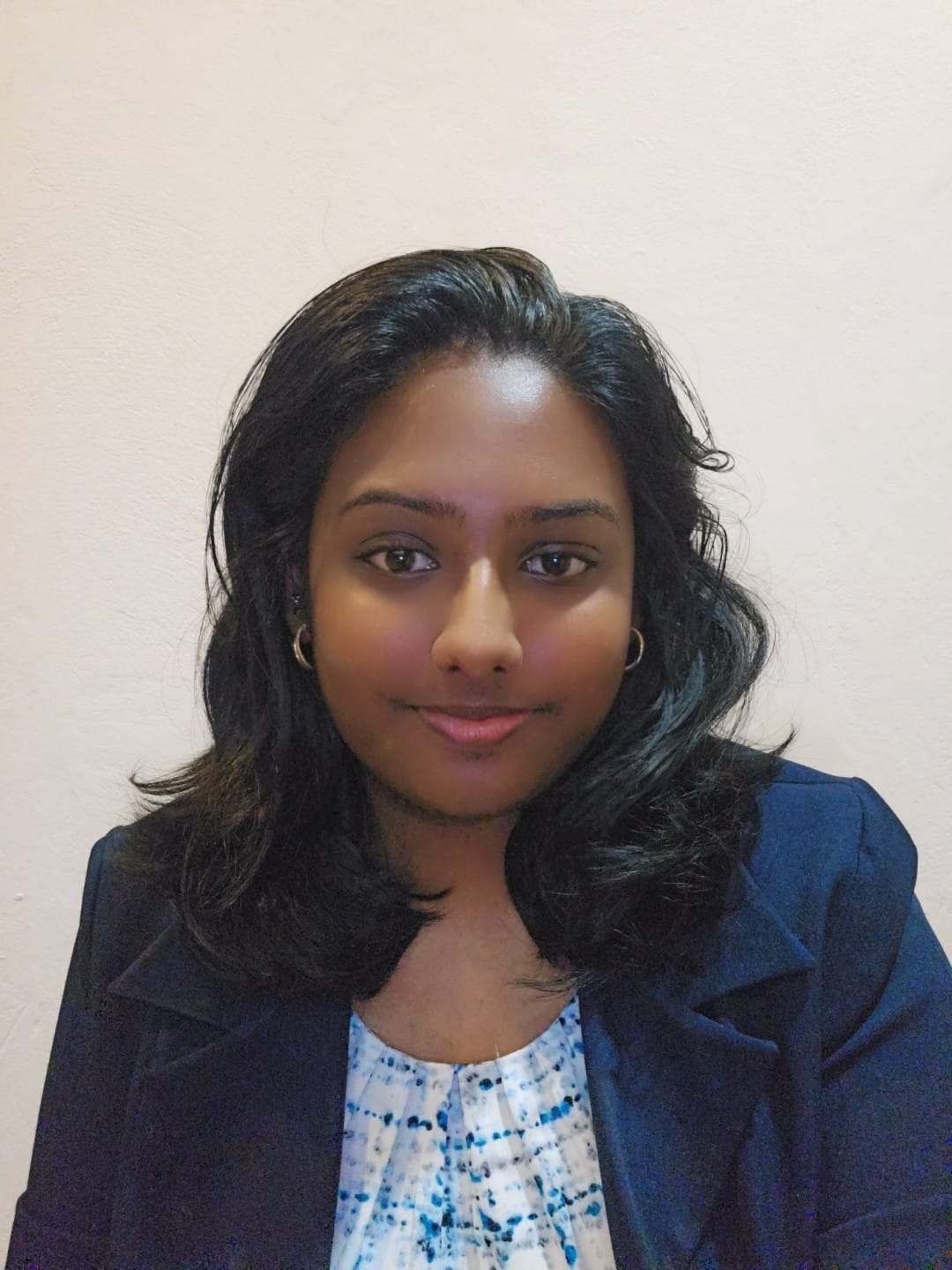
Samantha Deonarine
Researcher
Samantha Deonarine, a recent graduate of the University of the West Indies with a BSc in Electrical and Computer Engineering, developed a strong interest in AI and control systems during her studies. Her research focused on creating a safety framework for large language models using industry standards, addressing AI safety concerns in high-stakes applications. Passionate about responsible AI development, Samantha is keen to explore the ethical implications of advanced AI, working to minimize biases, prevent unintended consequences, and ensure AI aligns with human values. She is dedicated to advancing AI safety for the benefit of humanity.
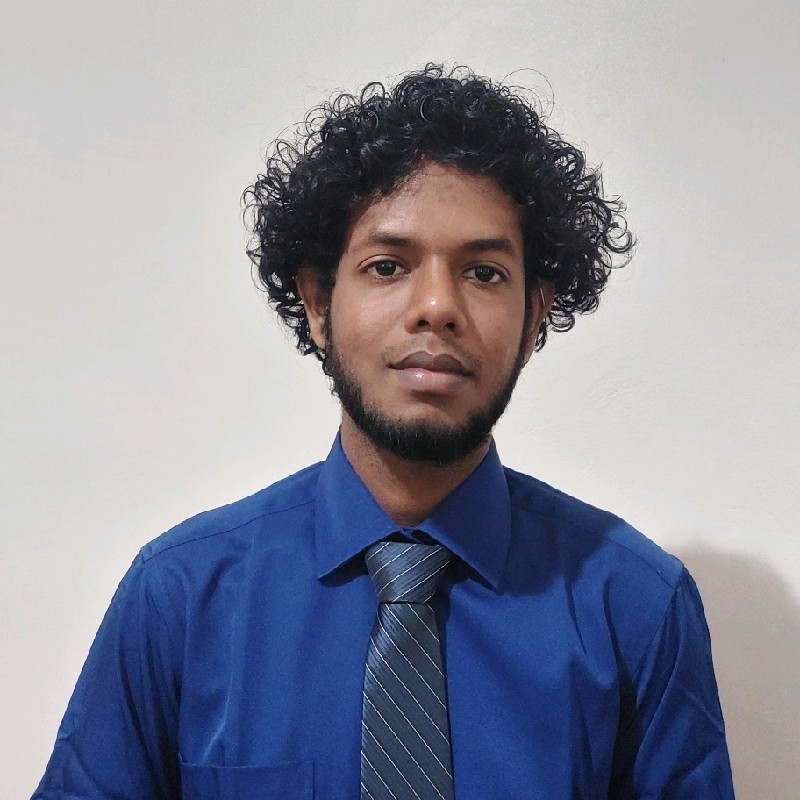
Nathan Ragoobar
Researcher
Nathan Ragoobar is an Electrical and Computer Engineering student with a specialization in controls and communication systems. His research interests lie at the intersection of artificial intelligence and embedded systems, focusing on the development of AI solutions for low-compute devices and robotics. Nathan is passionate about making AI more accessible by exploring innovative optimizations for training and inference in large language models, aiming to make cutting-edge technologies more accessible and efficient.
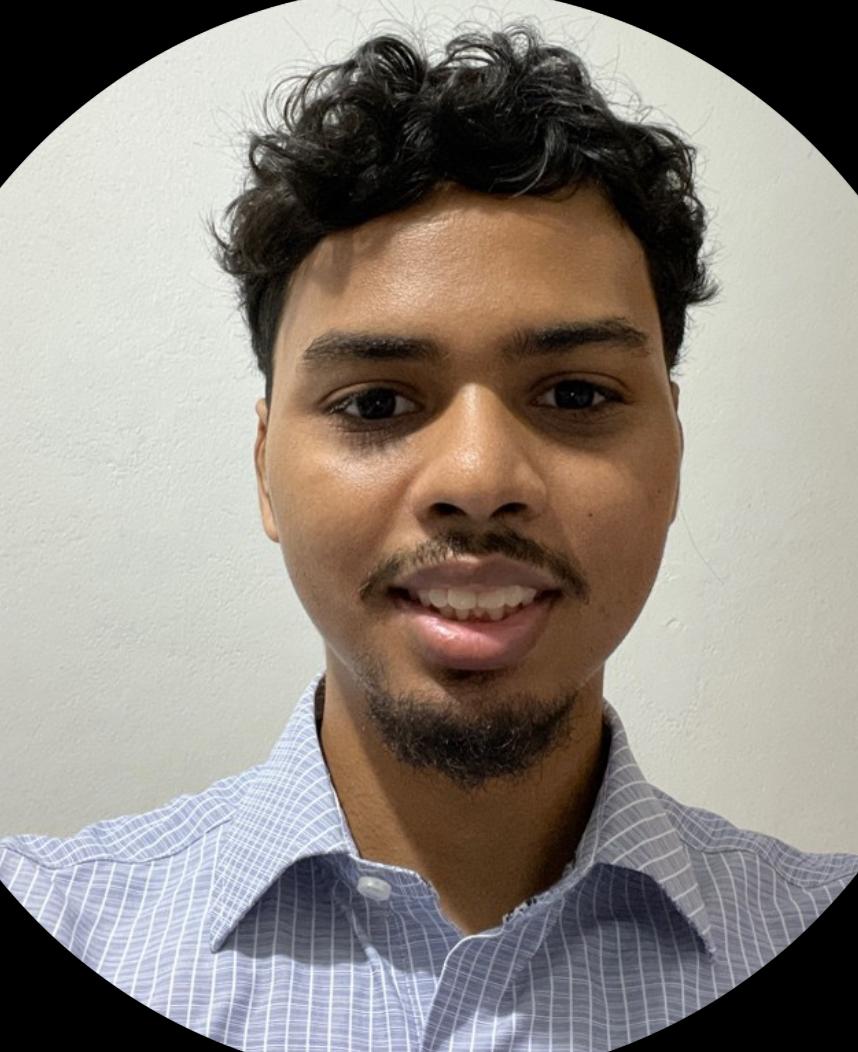
Stephen Allong
Researcher
Holds a BSc. in Electrical and Computer Engineering focused on Communication and Electronic Systems from the University of the West Indies (UWI), St. Augustine Campus. He is currently involved in different AI driven projects at UWI and has a keen interest in the telecommunications field as well as programming electronic devices.
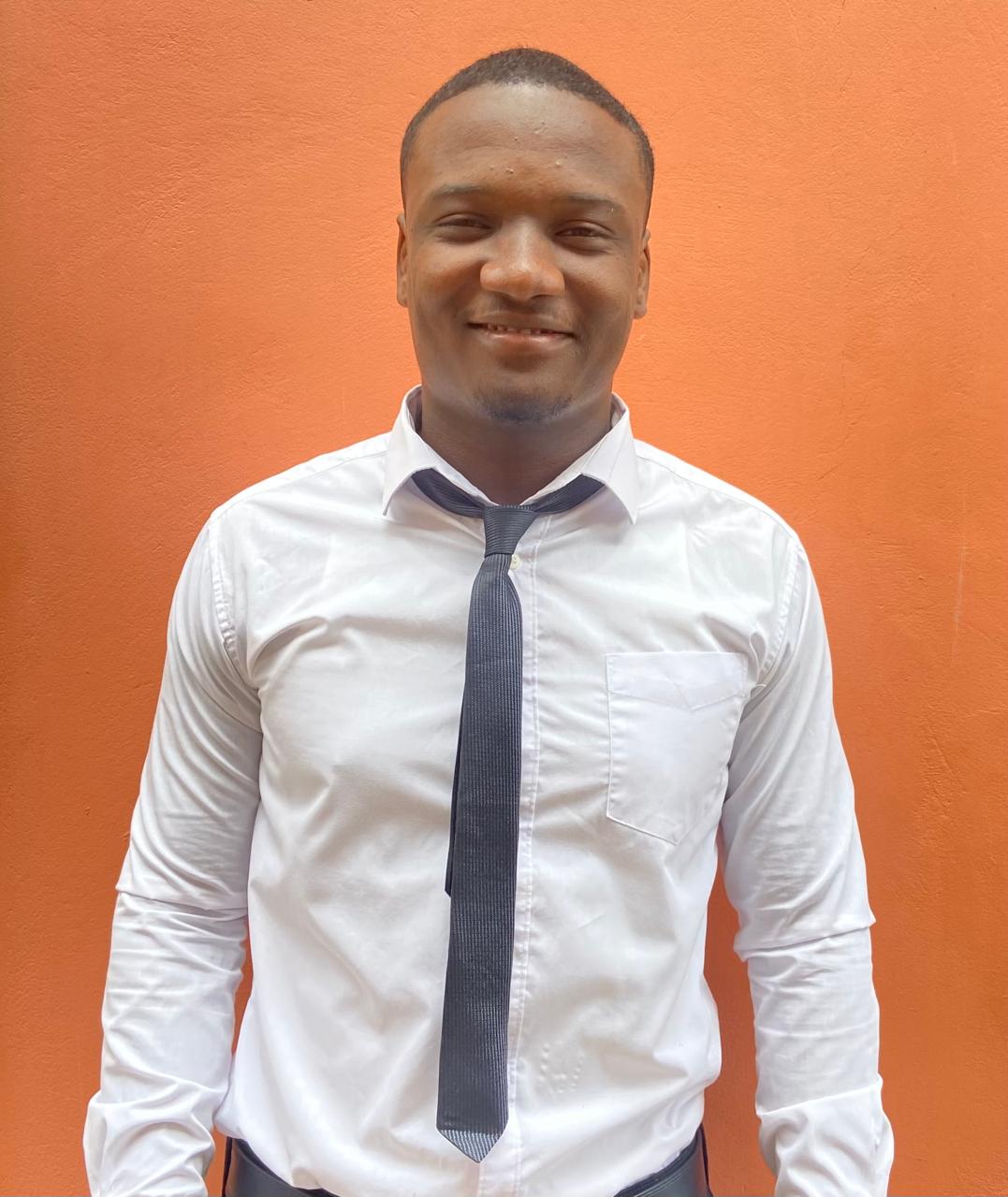
Chane Gomes
Researcher
Chane Gomes is an Electrical and Computer Engineering student at the University of the West Indies, specializing in communication systems and control. He is passionate about the field of telecommunications and its potential to drive innovation in the Caribbean. Chane is also deeply interested in the emerging field of cold plasma technology and its potential applications in the region, particularly within agriculture. He is excited about exploring how these innovative technologies can be harnessed to support sustainable development and enhance the Caribbean’s agricultural landscape.
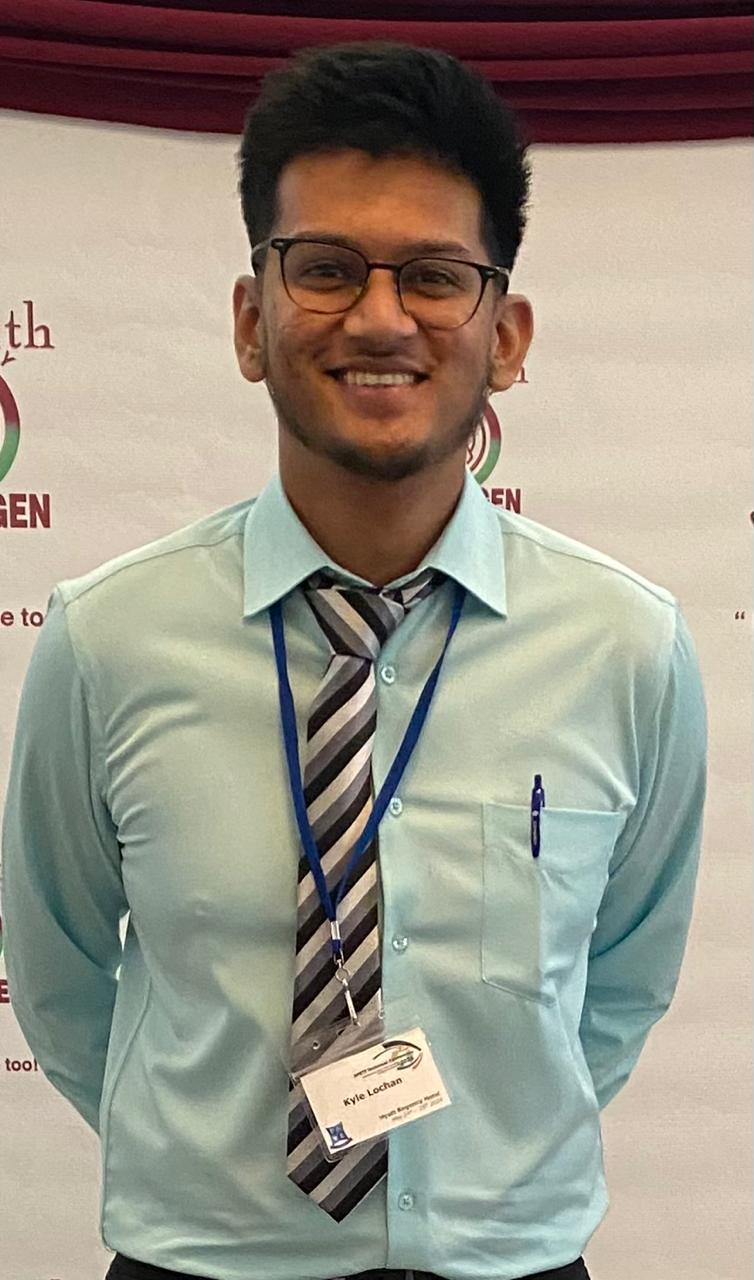
Kyle Lochan
Researcher
Kyle Lochan is an Electrical and Computer Engineering student majoring in energy systems. He is passionate about control systems and has research interests in applying AI to Power Systems and Cold Atmospheric Plasma Generation. His current research involves implementing plasma-activated water in a Caribbean, agricultural context.